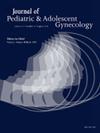Polish Mothers and Cervical Cancer Prophylaxis: What Do They Know and What Attitude Do They Have Toward Human Papillomavirus Vaccination?
IF 1.8
4区 医学
Q3 OBSTETRICS & GYNECOLOGY
引用次数: 0
Abstract
Objective
The aim of the study was to assess the knowledge and awareness of cervical cancer primary and secondary prophylaxis among our patients’ mothers, and their attitude toward human papillomavirus (HPV) vaccination.
Methods
During patients’ appointments at Children’s Memorial Health Institute Pediatric and Adolescent Gynecology Clinic in Warsaw we asked 234 mothers (aged <20-60) to complete a self-prepared survey. The data were analyzed using t-student test and chi-square test.
Results
Only 61.5% of respondents correctly indicated the purpose of cervical cytology. Similarly, 67.9% claimed that it should be performed annually, and 79.4% that till the end of life. Although 87.6% of answerers have heard about HPV vaccination, still 69.3% of them were willing to get more information. Physicians were considered the most reliable source of knowledge about HPV vaccination and had a relevant impact on mothers’ decision to vaccinate (P < .05). Nearly all respondents (92.7%) weren’t vaccinated against HPV. Still, 57.3% declared willingness to vaccinate their children. The vaccine skeptics indicated that they had too little information (59%), feared side effects (45%), and doubted HPV vaccine effectiveness (23%). Mothers aged 40 and older and with higher education had greater knowledge about cervical cancer screening (P < .05) and were more willing to vaccinate their children (P < .05).
Conclusion
Since cervical cytology was invented 100 years ago, knowledge about this screening test is low. The HPV vaccine is well-recognized and well-accepted, but most respondents lack information. Consequently, it is crucial to initiate multidirectional educational actions to raise awareness about cervical cancer and its prophylaxis.
"波兰母亲与宫颈癌预防。他们对HPV疫苗接种了解多少,持什么态度?”
目的:本研究的目的是评估患者母亲对宫颈癌一级和二级预防的知识和意识,以及她们对HPV疫苗接种的态度。方法:在华沙儿童纪念健康研究所儿科和青少年妇科诊所的患者预约期间,我们询问了234名母亲(老年)。结果:只有61.5%的受访者正确指出了宫颈细胞学检查的目的。同样,67.9%的人认为应该每年做一次,79.4%的人认为应该一直做到生命结束。虽然有87.6%的受访者听说过HPV疫苗接种,但仍有69.3%的受访者愿意获得更多的信息。医生被认为是HPV疫苗接种知识的最可靠来源,并对母亲接种疫苗的决定有相关影响(结论:由于宫颈细胞学是在100年前发明的,因此对这项筛查试验的了解很低。HPV疫苗得到了广泛认可和接受,但大多数应答者缺乏相关信息。因此,开展多方位的教育行动以提高人们对宫颈癌及其预防的认识至关重要。
本文章由计算机程序翻译,如有差异,请以英文原文为准。
求助全文
约1分钟内获得全文
求助全文
来源期刊
CiteScore
3.90
自引率
11.10%
发文量
251
审稿时长
57 days
期刊介绍:
Journal of Pediatric and Adolescent Gynecology includes all aspects of clinical and basic science research in pediatric and adolescent gynecology. The Journal draws on expertise from a variety of disciplines including pediatrics, obstetrics and gynecology, reproduction and gynecology, reproductive and pediatric endocrinology, genetics, and molecular biology.
The Journal of Pediatric and Adolescent Gynecology features original studies, review articles, book and literature reviews, letters to the editor, and communications in brief. It is an essential resource for the libraries of OB/GYN specialists, as well as pediatricians and primary care physicians.

 求助内容:
求助内容: 应助结果提醒方式:
应助结果提醒方式:


